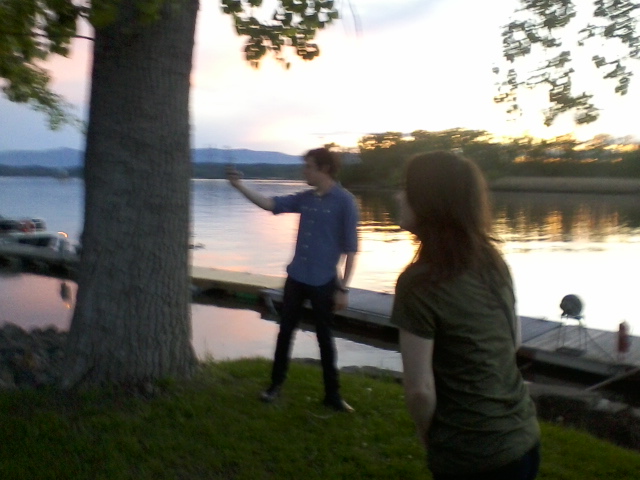Let's float a new definition for "post-internet" or po-net, as it jokingly called.
"New Media artists who use Facebook as a primary location for work, discussion, news, and/or self-promotion"
Referring back to an earlier confab, one definition of the "post-" moment (Gene McHugh's) was the web's transition from its early geeky/amateur days, roughly Geocities through Blogspot, to the time it become everyday reality for most folks (the arrival of social media, meaning Facebook). That is to say, widespread use of a "mini-internet" -- a database, not really a "net" -- that mimicked the web's multiplicity and sprawl but was all owned by one company. Whereas in 2005 you might use a search engine to find Jane Doe Artist on the web, by 2011 you'd check Facebook to see if she had a page.
Challenged by the success of this model, Google, which was once somewhat neutral in its search regimen, began treating the sprawl like a database it controlled. Formerly boutique-y shops such as Twitter gradually aspired to be Walmart.
But let's stick to Facebook. Even with everything we know about its egregious commercial practices and ties to the surveillance sector, it's still the go-to place for artists. Not necessarily for content but as a phone directory, a place to announce shows, and a hub for critical discussion.
After Rhizome.org's recent fundraiser, both that organization and the ArtFCity site lamented that comment culture had "moved on" from independent blogs to social media, meaning Facebook. When Marisa Olson wanted to post a statement protesting a cancelled show by a commercial gallery, she did it on Facebook. I don't think it's inaccurate to say that the majority of participants in the new media biennale "The Wrong" actively used their Facebook accounts for announcements and chat about the event.
A handful of creative types have bailed on Zuck, or never signed up. Perhaps clinging to ideals of a web larger than a single dominant business. Geeks, perhaps -- but it's not like it takes much smarts or money to set up a website and let search engines find you.
Everyone else, then, is a post-internet artist.
Update: Once again the magic 8 ball told me Rhizome was about to post on a topic. This appeared a few hours after the above was written.





